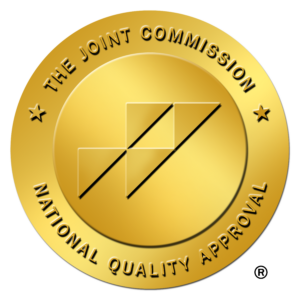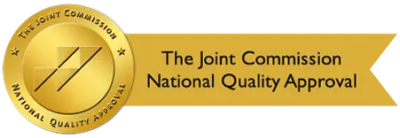Breaking Barriers: Overcoming Bipolar Disorder Challenges in Rural Life
Breaking Barriers: Overcoming Bipolar Disorder Challenges in Rural Life
Living with bipolar disorder can be challenging in any environment, but rural communities often present unique obstacles to accessing treatment and support. However, by understanding these barriers, seeking help, and implementing effective strategies, individuals can successfully manage their condition and thrive in rural life. This in-depth exploration aims to shed light on the complexities of bipolar disorder in rural settings, offering valuable insights, resources, and practical tips for individuals, families, and caregivers navigating this journey.
What is Bipolar Disorder?
Bipolar disorder, also known as manic-depressive illness, is a mental health condition characterized by extreme mood swings. These swings fluctuate between periods of mania (elevated mood, increased energy, racing thoughts, and impulsivity) and depression (profound sadness, low energy, loss of interest, and feelings of worthlessness). The severity and frequency of these mood swings can vary greatly from person to person.
To learn more about the diagnostic criteria and symptoms of bipolar disorder, you can visit the National Institute of Mental Health (NIMH) website.
Types of Bipolar Disorder
Bipolar disorder is not a one-size-fits-all diagnosis.
There are several distinct types, each with its own unique set of symptoms and challenges:
- Bipolar I Disorder: Characterized by at least one manic episode, which may be preceded or followed by hypomanic or major depressive episodes. Manic episodes can be so severe that they require hospitalization.
- Bipolar II Disorder: Characterized by at least one hypomanic episode (a less severe form of mania) and at least one major depressive episode. While hypomania is less intense than mania, it can still significantly disrupt daily life.
- Cyclothymic Disorder: Characterized by numerous periods of hypomanic symptoms and depressive symptoms that do not meet the full criteria for a hypomanic or major depressive episode. These mood swings are less severe but more chronic, lasting for at least two years.
- Other Specified and Unspecified Bipolar and Related Disorders: Disorders that do not meet the full criteria for the other types of bipolar disorder.
For a more detailed explanation of the different types of bipolar disorder, you can refer to the Diagnostic and Statistical Manual of Mental Disorders (DSM-5).
Potential Causes of Bipolar Disorder
While the exact cause of bipolar disorder remains unknown, research suggests a combination of factors contribute to its development:
Genetics: A family history of bipolar disorder or other mood disorders significantly increases an individual’s risk. This suggests a genetic predisposition, but genes alone do not determine whether someone will develop the condition. You can explore the genetic aspects of bipolar disorder on the National Human Genome Research Institute (NHGRI) website.
Brain Chemistry Imbalance: Irregularities in neurotransmitters (brain chemicals) like dopamine, serotonin, and norepinephrine are associated with bipolar disorder. These imbalances can affect mood regulation, energy levels, and cognitive function. The Mayo Clinic provides information on the role of brain chemistry in bipolar disorder.
Environmental Factors: Stressful life events, trauma, and substance abuse can trigger or exacerbate bipolar episodes. These environmental factors may interact with genetic and biological vulnerabilities to trigger the onset of bipolar disorder or contribute to its course. The National Alliance on Mental Illness (NAMI) offers resources on the impact of environmental factors on mental health.
Understanding Rural Lifestyle Challenges to Mental Health
Life in rural areas offers a unique set of advantages, such as a slower pace of life, closer-knit communities, and greater connection to nature. However, these same factors can also pose challenges for individuals with bipolar disorder:
- Limited Access to Specialized Care: Rural areas often have fewer mental health specialists compared to urban centers. This can lead to long wait times, travel difficulties, and a lack of access to specific treatments or therapies, such as specialized bipolar disorder clinics or support groups.
- Transportation Barriers: Limited public transportation and long distances between healthcare providers can make it difficult for individuals to attend regular appointments and access support services consistently. This can disrupt treatment plans and hinder recovery.
- Social Stigma and Isolation: Smaller communities may have a higher degree of stigma surrounding mental illness, which can discourage individuals from seeking help or openly discussing their struggles. Additionally, the lack of anonymity in rural areas can exacerbate feelings of isolation and shame.
- Economic Challenges: Rural populations often face higher rates of poverty and unemployment, creating financial barriers to accessing mental healthcare. This can limit options for treatment and medication, leading to untreated or undertreated bipolar disorder.
- Cultural Differences: Rural communities may have distinct cultural values and beliefs about mental illness, which can affect how individuals perceive their condition and seek treatment. Some individuals may be hesitant to seek professional help due to cultural beliefs or fear of judgment.
Overcoming the Stigma in Rural Communities
Stigma remains a significant barrier to seeking help for bipolar disorder in rural areas. However, several strategies can help to overcome this challenge:
- Education and Awareness: Increase awareness about bipolar disorder through community events, workshops, and outreach programs. Education can help dispel myths and misconceptions about mental illness, fostering understanding and empathy.
- Open Dialogue: Encourage open conversations about mental health within families, social circles, and community organizations. Creating safe spaces for dialogue can normalize mental health struggles and reduce shame.
- Sharing Personal Stories: Individuals sharing their experiences with bipolar disorder can help normalize the condition and reduce stigma. Storytelling can be a powerful tool for fostering connection and understanding.
- Advocacy Efforts: Advocate for increased mental health resources and support services in rural areas. Lobbying for policy changes and supporting local initiatives can improve access to care and reduce disparities.
- Reducing Self-Stigma: Encourage individuals to seek help without shame or judgment. Emphasize that mental illness is a medical condition, not a personal failing.
Supporting Someone with Bipolar Disorder
Supporting a loved one with bipolar disorder requires understanding, patience, and empathy.
Here are some ways to provide support:
Educate Yourself
Learn about bipolar disorder, its symptoms, and available treatment options. Understanding the condition can help you better support your loved one.
Listen Empathetically
Be a non-judgmental listener and validate their experiences. Let them know you care and are there for them.
Encourage Treatment
Help them find a mental health professional and support their treatment plan. Offer to accompany them to appointments or help them research treatment options.
Be Patient and Understanding
Remember that mood swings are not a personal choice and can be difficult to control. Avoid blaming or criticizing them for their symptoms.
Offer Practical Assistance
Help with daily tasks, transportation, or childcare as needed. Practical support can reduce stress and improve their overall well-being.
Set Boundaries
Establish healthy boundaries to protect your own well-being. It’s important to take care of yourself while also supporting your loved one.
Early Warning Signs and Triggers
Recognizing early warning signs and triggers can help individuals with bipolar disorder and their loved ones proactively manage the condition. Some common signs of an impending mood swing include:
Mania:
- Decreased need for sleep: Feeling rested after only a few hours of sleep or not sleeping at all.
- Racing thoughts: Difficulty concentrating or staying focused.
- Increased energy and activity: Feeling unusually energetic or restless.
- Impulsivity: Engaging in risky behaviors or making impulsive decisions.
- Irritability and agitation: Feeling easily frustrated or angered.
Depression:
- Loss of interest in activities: Lack of enjoyment in previously pleasurable activities.
- Changes in sleep and appetite: Sleeping too much or too little, changes in eating habits.
- Fatigue and low energy: Feeling tired and sluggish.
- Difficulty concentrating: Trouble focusing or making decisions.
- Feelings of worthlessness or guilt: Negative thoughts about oneself.
Common triggers for mood swings in bipolar disorder can include:
- Stressful life events: Job loss, relationship problems, financial difficulties.
- Changes in routine: Disruptions in sleep patterns, travel, or major life changes.
- Substance use: Alcohol or drug use can trigger or worsen mood swings.
- Medication non-compliance: Not taking medication as prescribed.
The Role of Support Groups
Support groups play a crucial role in helping individuals with bipolar disorder and their loved ones cope with the challenges of the condition. These groups provide a safe space to share experiences, gain support, and learn from others facing similar challenges. Support groups can be found through local mental health organizations, community centers, or online platforms.
The Depression and Bipolar Support Alliance (DBSA) offers a directory of support groups. Just click the link below:
The Importance of Seeking Help and Finding Hope
Seeking professional help is crucial for managing bipolar disorder effectively. A mental health professional can provide an accurate diagnosis, develop a personalized treatment plan, and offer ongoing support.
Treatment options for bipolar disorder include:
Medication: Mood stabilizers, antipsychotics, and antidepressants are commonly prescribed to manage mood swings and other symptoms. Medication can significantly improve mood stability and reduce the severity of episodes.
Therapy: Cognitive-behavioral therapy (CBT), interpersonal and social rhythm therapy (IPSRT), and family-focused therapy (FFT) can help individuals develop coping skills, manage stress, and improve relationships. Therapy can be a powerful tool for long-term recovery.
Lifestyle Changes: Regular sleep, healthy diet, exercise, and stress management techniques can play a significant role in managing bipolar disorder. These lifestyle changes can help regulate mood, improve energy levels, and reduce the risk of relapse.
Additional Resources for Rural Residents
National Alliance on Mental Illness (NAMI): NAMI offers support groups, educational programs, and resources for individuals and families affected by mental illness. Their website and helpline can connect you with local resources and support.
MentalHealth.gov: This government website provides information on mental health conditions, treatment options, and resources for finding help. It offers a comprehensive directory of mental health providers and resources across the country.
**Crisis Text Line:**Text HOME to 741741 to connect with a crisis counselor. This free, 24/7 service provides confidential support for anyone experiencing a mental health crisis.
Navigating Bipolar Disorder in Rural Areas: Tips for Success
Living with bipolar disorder in a rural area presents unique challenges, but it’s possible to overcome them and lead a fulfilling life.
Here are some additional tips for navigating bipolar disorder in rural settings:
Utilize Telehealth:
Telehealth allows individuals to access mental health services remotely, overcoming geographical barriers and increasing access to specialized care. Many mental health providers now offer virtual appointments, making therapy and medication management more accessible.
Seek Support from Local Resources:
Connect with primary care physicians, community mental health centers, support groups, and faith-based organizations that offer mental health services. These local resources can provide valuable support and guidance.
Build a Strong Support Network:
Cultivate supportive relationships with family, friends, and online communities. Connecting with others who understand your experience can be invaluable for navigating the challenges of bipolar disorder.
Practice Self-Care:
Prioritize healthy lifestyle habits, stress management techniques, and medication adherence. Taking care of your physical and mental well-being is essential for managing bipolar disorder.
Advocate for Change:
Participate in local initiatives to raise awareness about mental health and advocate for increased resources in rural communities. By speaking up and getting involved, you can help create positive change and improve access to care for everyone.
Verify Your Coverage Here
Living a Fulfilling Life with Bipolar Disorder
Living with bipolar disorder in a rural area presents unique challenges, but it is possible to overcome them and lead a fulfilling life. By seeking help, implementing effective strategies, and accessing available resources, individuals can manage their condition, build resilience, and thrive in their communities. Remember, you are not alone. With the right support and resources, you can navigate the challenges of bipolar disorder and achieve a happy and healthy life.
"*" indicates required fields








